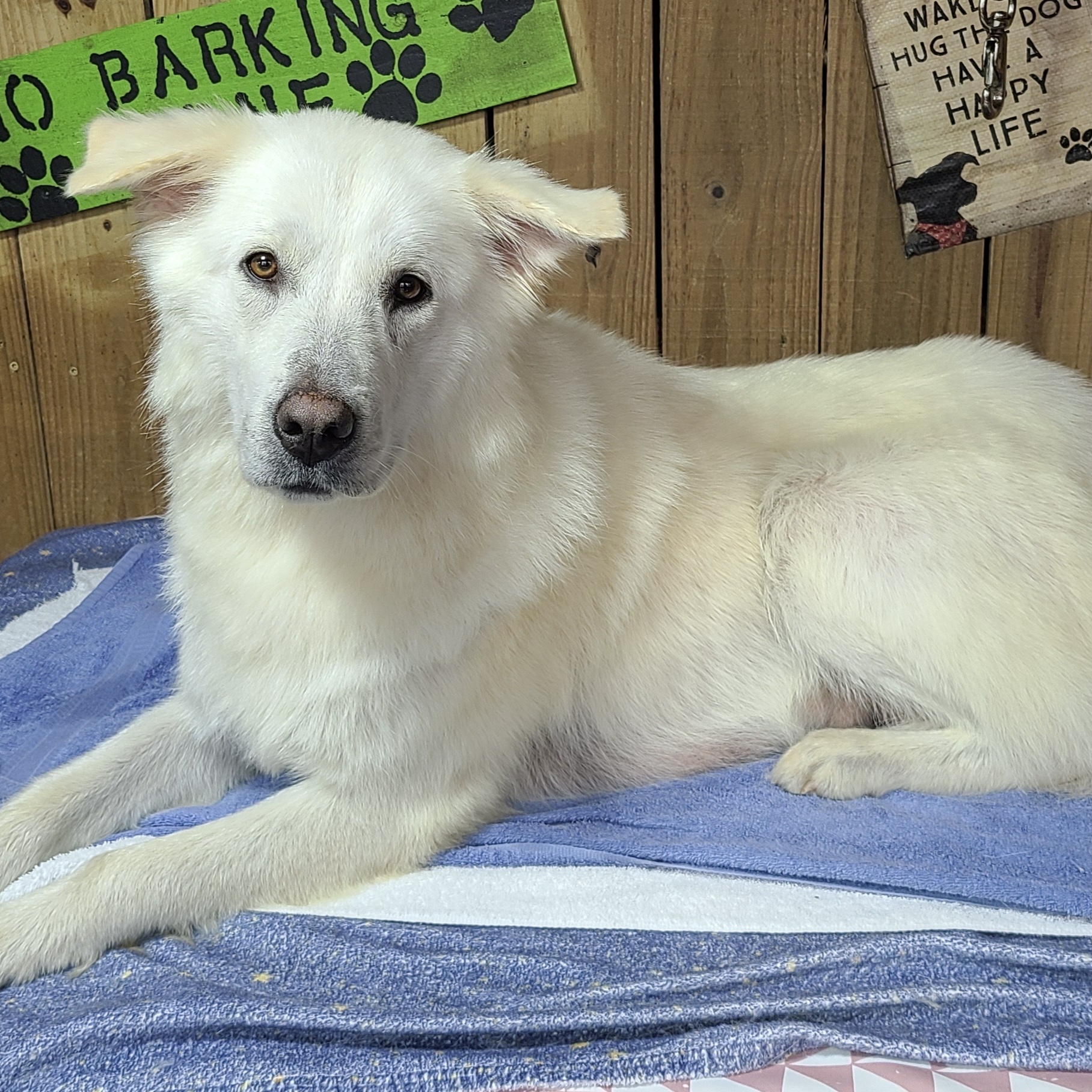Cootie
Age
2 yrs
Weight
75 lbs.
Sex
Female
Breed
Great Pyrenees
Hi, Cootie is my name. Yep, someone named me Cootie. As long as I have a loving human calling me Cootie, I will be your faithful guardian.
Since I am only two years old and have already been a momma, I’m excited to find my very own Pry-ever human family!
My previous family describes me as a family dog. Cats are cool, and I love children. A backyard that allows me to run around and get out all of my teenage energy is an ideal thing. If you do not have a backyard, count on me as your walking buddy. Just know, I still need time to improve on my leash manners. Be sure to walk me early in the morning or the evening when hot summer days have cooled down. Because of my double coat, humans need to be careful not to overdo activities with their Pyrs in the summer heat.
Additional training will help me grow up to be a well-mannered girl. If there are other dogs in the house, be sure to feed us separately and pick up food bowls after eating because I do not like sharing my food bowl. Yes, this is an area for improvement, and with some help from my humans, I will do better. You see, Great Pyrenees are people-pleasing, big loves that want to do the right thing. I’m already doing quite well with commands such as “sit,” “stay,” “off,” and “down.”
Here’s what my foster family said about me. As they learn more, I will update you.
“Cootie is a very loving dog. She is good with adults, kids, cats, and other dogs. She also understands ‘no’ and ‘heel’ when she is on leash.”
Are you ready to get some love from this Cootie girl?
Pyrly yours, Cootie ♥️
Please email info@greatpyratlanta.com, click “Contact Us” or choose “Apply to Adopt” below.
Donate to Great Pyrenees Rescue of Atlanta
Our main mission at GPRA is to find the right permanent home for Great Pyrenees in distress, whether they are strays or from an overpopulated kill or no-kill shelter. We don’t care how old they are or what their medical condition is because we will make sure they receive a comprehensive medical evaluation, spaying or neutering, and even behavioral training if necessary.

